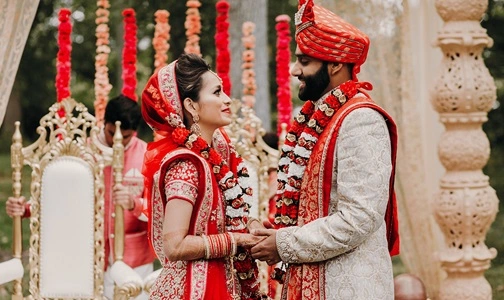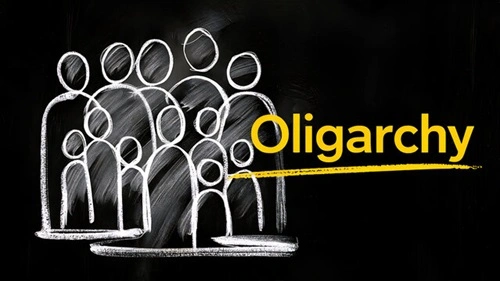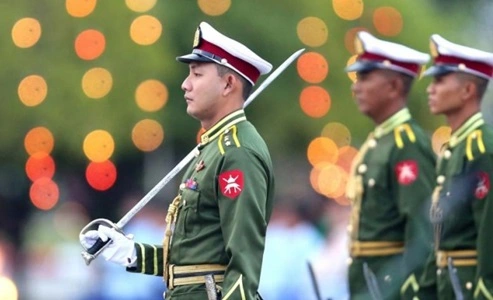Well, in the simplest words possible, this kind of marriage is one whereby the families, usually parents, play matchmaker for their children. Unlike love marriages, in which individuals choose their own mates, arranged marriages include the family heavily in the match or choosing process, you know? Particularly quite popular in areas like South Asia and the Middle East, arranged marriages are rich in history and go beyond simple marriage. And it is not just like a quick process, there is a lot that goes into an arranged marriage, and that’s why they are kinda unique.

Advantages of Arranged Marriage
1. Family Support and Involvement
One of the main advantages of arranged marriages is the strong family support structure, subtly hinted at. Families in this arrangement actively participate from matchmaking to marriage and beyond, not only observers. This is not just for the sake of it, you know, it’s a game-changer that helps the marriage to be more solid and safe by means of a wealth of knowledge from elderly people to rely on.
2. Matchmaking Experience of Elders
You must consider it at all costs: nobody else knows the nuances of life better than our parents and grandparents. When they choose a mate for their children, they are using all that knowledge to guide their decisions and choose someone who truly connects on key topics such as beliefs and life objectives. This goes beyond simply matching, it’s about creating a relationship strong enough to last, therefore increasing the chances for a really great marriage.
3. Social Compatibility
In terms of guaranteeing social compatibility, arranged marriages are really clever. How? Families may choose mates from like backgrounds, which reduces the need for later conflict over different lifestyles or ideals. Daily living to more significant, once-in-a-lifetime decisions usually go better when both parties are on the same page culturally.
4. Reduced Pressure of Finding a Partner
Dating is, to be honest, kinda a drag, especially these days. In an arranged marriage, however, your family manages the burden of choosing Mr. or Mrs. Right so you avoid it. This method helps to reduce the turmoil and transforms the entire process from selecting someone to date to more about forging a deep relationship down the line.
5. Higher Stability and Lower Divorce Rates
Fascinatingly, arranged marriages may have lower divorce rates than love relationships. What then? It combines all-out support from both sides with matching social compatibility and extensive family participation. These components provide a strong basis that enables couples to stay together and face obstacles head-on.
6. Shared Values and Traditions
When you have similar backgrounds, life seems a lot less difficult. Designed marriages shine in bringing together persons already on the same wavelength culturally, you know? This common ground guarantees that beloved family traditions not only survive but also flourish and help to create a strong, cooperative connection by lowering conflict at all costs.
7. Economic Benefits
Often disregarded, the financial plan underlying arranged marriage is just genius. Families are aligning financial futures, not only hearts, this might represent significant stability for the newlyweds.
Disadvantages of Arranged Marriage
1. Where’s the Love?
One big drawback of arranged marriages? Many times, there is no emotional spark or love to start things. Imagine being wedded without the butterflies in your gut since the family set everything up. This may make what ought to be a loving marriage nothing more than a legal pact, you know? Without that strong emotional connection, couples may find themselves only running through the motions, which causes a great deal of grief as they try to actually connect down the line.
2. Conflict And Peace, Not A Balance
See, in arranged marriages, personality, hobbies, and life objectives may not show themselves until you are already married. Without the basis of personal choice, learning to live with each other’s eccentricities and demands may become a daily struggle. This frequently results in misunderstanding and conflict, transforming what should be newlywed delight into kind of a little horror.
3. Dowry Drama
Probably, why so many people absolutely hate the concept of arranged marriages is the very reason that there is this thing called Dowry. You know, where the bride’s family gives money or any other type of gifts to the groom’s family? Worse still, arguments about dowry can get out of hand and result in extreme events including domestic violence. Furthermore, the pressure to keep social status by marriage might drive families to make decisions that might not be the best long-term ones.
4. Where’s My Say?
Speaking about choice, or more importantly, lack of it, you know? In many arranged marriages, the people getting married have little to say about their mate. The family owns all of this, which can cause captivity and anger. Stuck in a relationship that doesn’t match your own aspirations or preferences? Not exactly a road map for happiness.
5. Adjustment Overload
Developing your relationship should be enjoyable rather than a sequence of demanding changes, right? In arranged marriages, however, you may find yourself catching up to grasp someone you recently met. This can raise stress levels and cause irritation, which makes it difficult to build the foundation of a solid and loving relationship.
6. Unhappiness Alert
Realistically speaking, you see, arranged marriages actually have a great chance for unhappiness, particularly if they seem more like a contract than a decision. It’s all too easy to feel as though you’ve lost a bit of your freedom when you can’t pick your spouse freely, leading to unhappiness in your married life.
7. Old-School Power Plays
Arranged weddings continue traditional, typically patriarchal roles strong in many places all throughout the world. This might place one partner, usually the woman, in a tighter position with less control and greater expectations to only handle the heart and house.
Comparison Between Advantages and Disadvantages of Arranged Marriage
| Advantages | Disadvantages |
| Strong family involvement and support | Lack of initial emotional connection |
| Elders’ experience in matchmaking | Potential for conflicts due to personality clashes |
| Ensures social compatibility | Dowry demands and related disputes |
| Reduces the pressure of finding a partner | Limited personal choice |
| Higher stability and lower divorce rates | Need for significant adjustments post-marriage |
| Shared values and traditions | High potential for unhappiness |
| Economic benefits and financial stability | Reinforcement of traditional, patriarchal roles |



